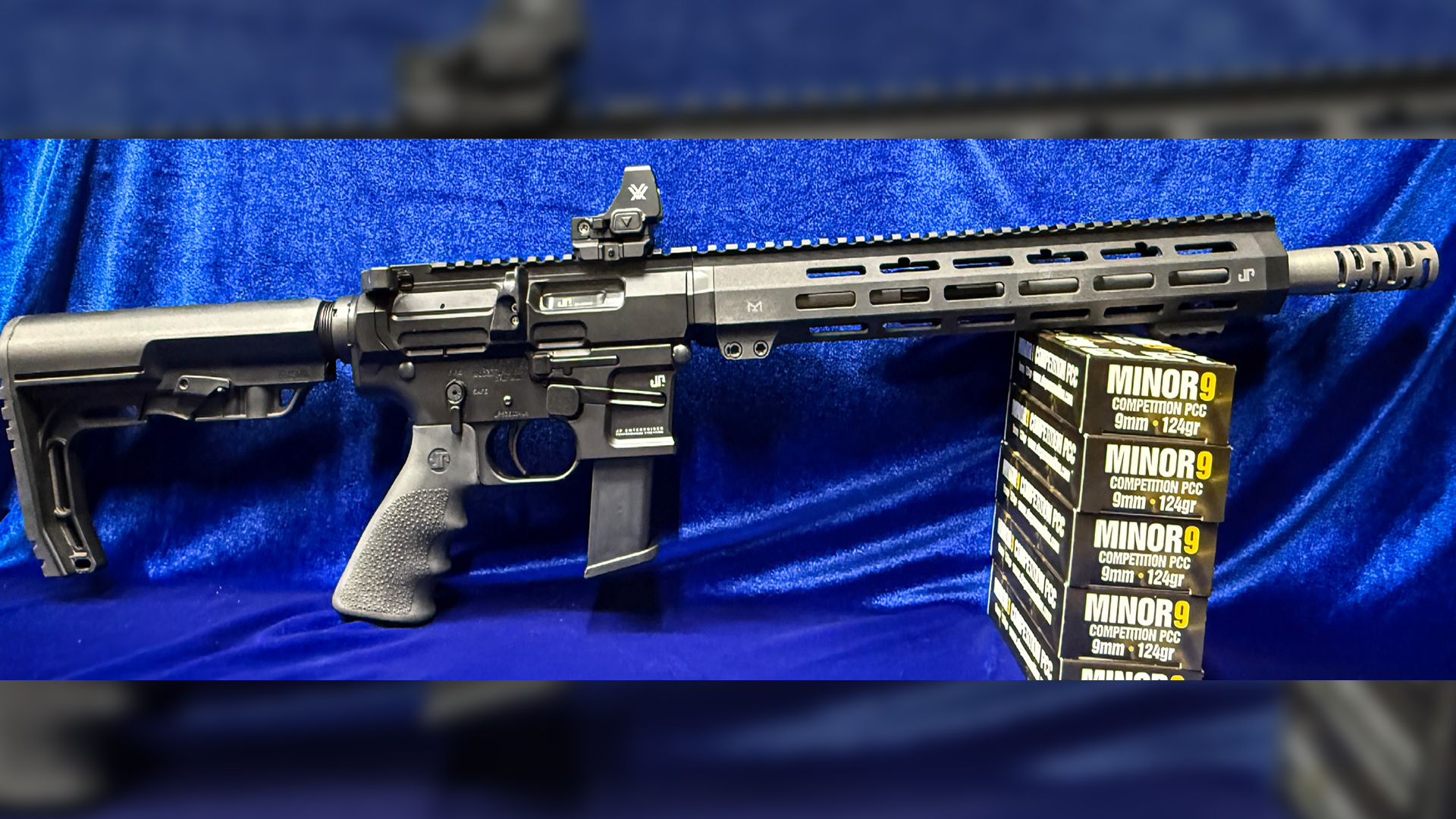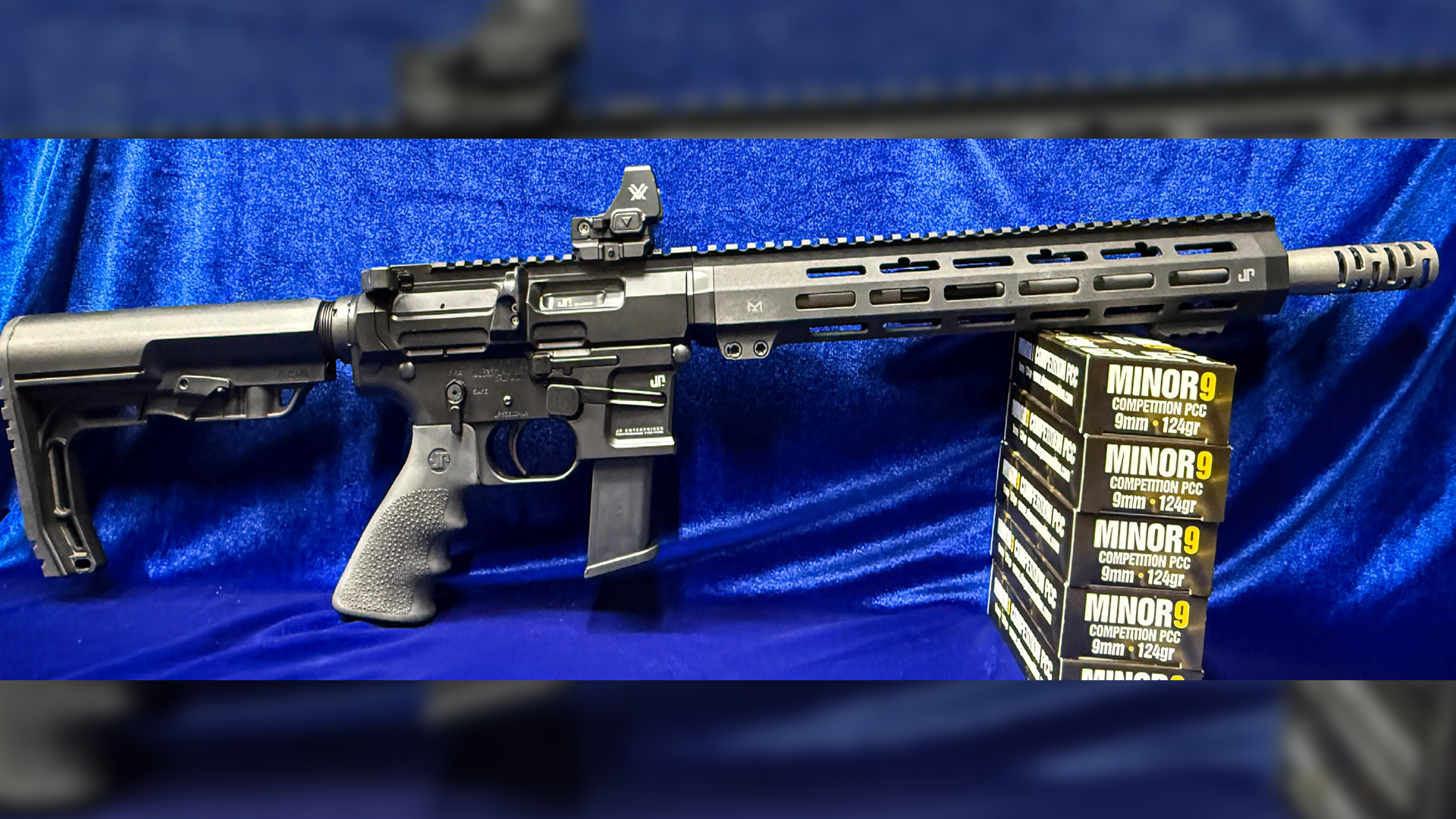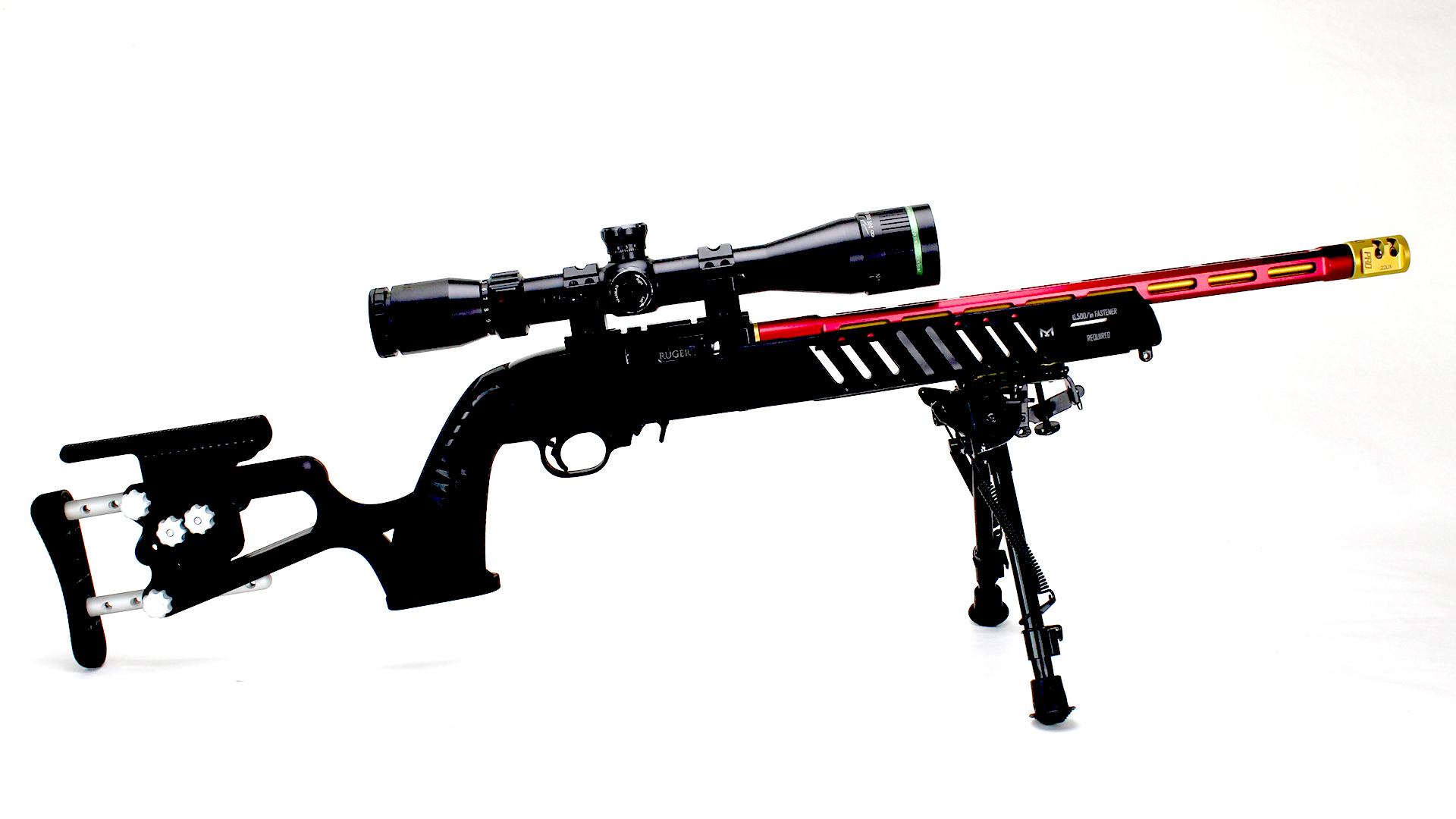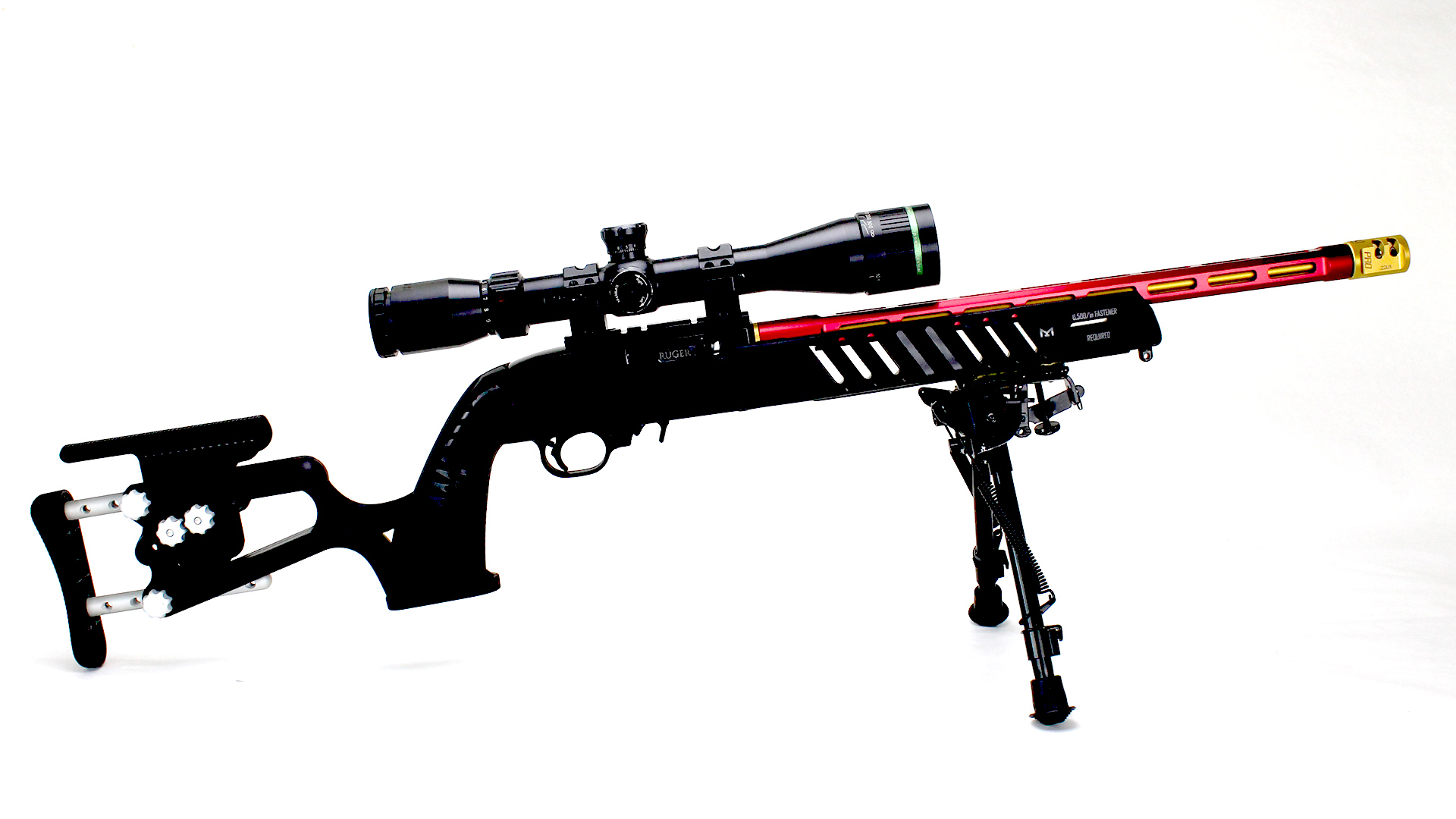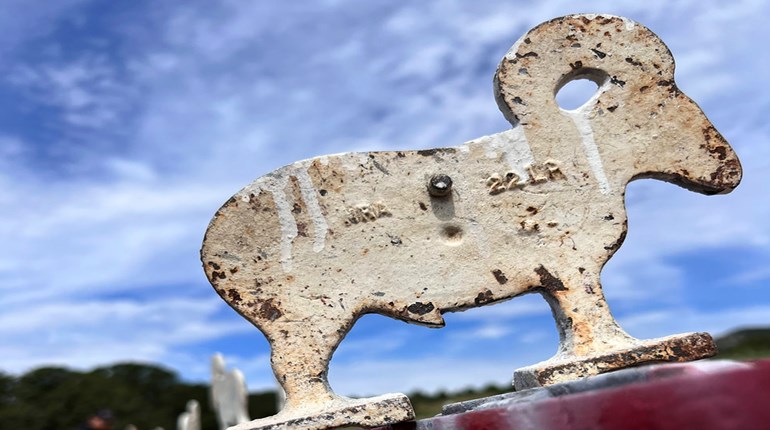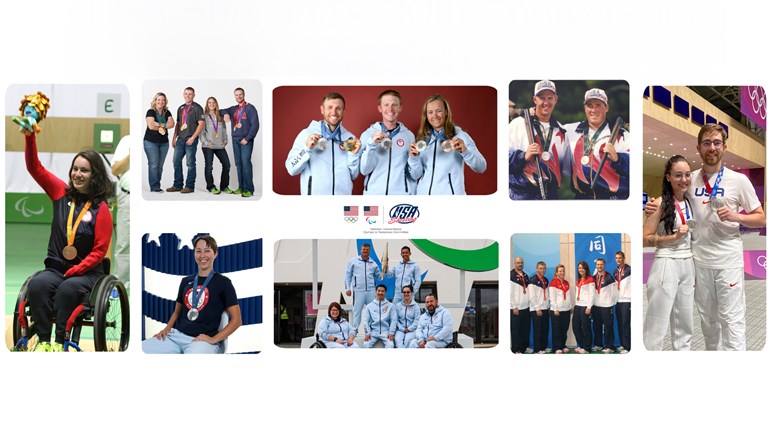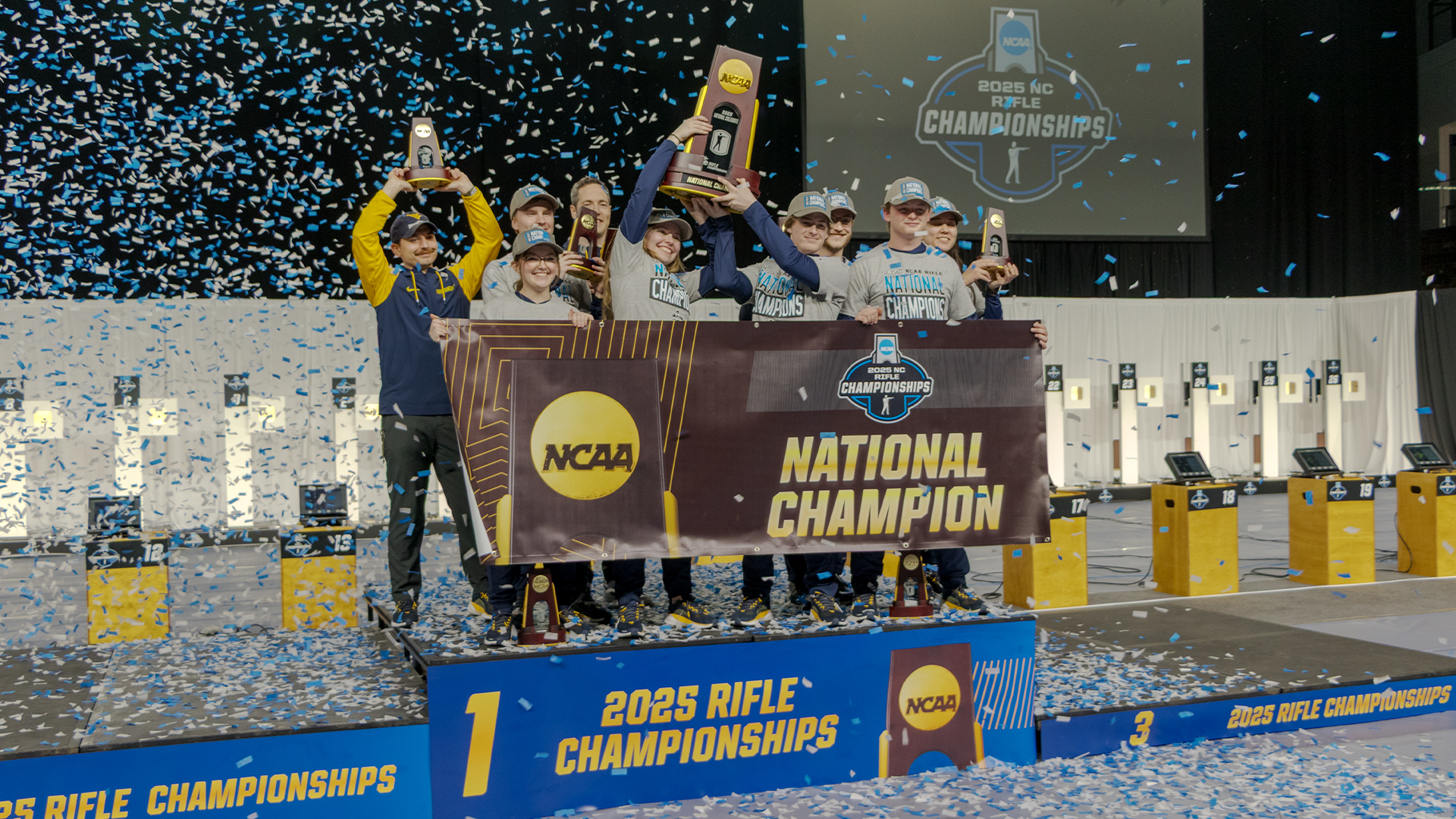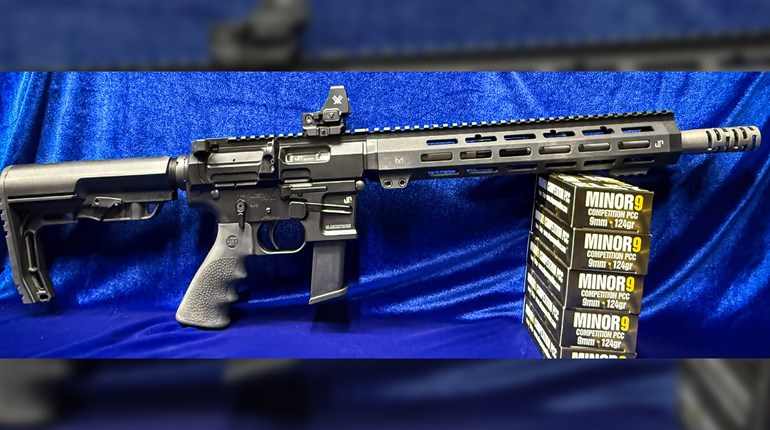
From the July 2000 issue of Shooting Sports USA.
Thanks be to God, it has been a great life and I could not have found any better organizations with which to spend a lifetime of service than the FBI of Hoover's day and the U.S. Marine Corps.
—Walter Walsh
Few men in history had a longer or more distinguished shooting career than Walter R. Walsh. Anyone who knows Walsh's reputation would think he must have been raised with a gun in his hands. This is far from being the case. Born May 4, 1907, he began life in the urban setting of downtown Union City, NJ.

While in high school, the patriotic young man lied about his age and joined the Civilian Military Training Corps. That's where he first learned to shoot. He enjoyed his experience so much that he promptly joined the New Jersey National Guard in 1928.
In his first year, Sgt. Walsh earned a place on the National Guard team that would attend the National Matches at Camp Perry.
During this time he also set his sights on scholastics and studied law at Rutgers University.
At the 37th Annual Sea Girt Interstate Tournament in 1930, Walsh won both rifle and pistol titles. He took the Governor's Champion Marksman Match, the miss-and-out Swiss Match, and the 15-shot, 1100-yard Libby Trophy Match. After only three years of competitive firing, Walsh ranked with the foremost rifle and pistol shooters of that time.

At the National Matches in 1932, Walsh tried his hand at smallbore rifle. Amazingly, the novice smallbore shooter was so proficient he was selected as an alternate on the elite Dewar Trophy Team. That same year he won the Wimbledon and American Legion Smallbore Matches.
By the following year Walsh was selected as a firing member of the Dewar Team, and he smashed the Dewar smallbore rifle record. His other shooting achievements of that year included setting a new record at Rumford, RI, in the smallbore national match course and a victory at the New Jersey State Pistol Championships using a .22 cal. automatic Colt Woodsman. The troopers of the New Jersey State Police usually dominated the matches with their .38 cal. revolvers and were quite upset when they learned about Walsh and his .22 cal.
FBI Agent
After earning his law degree from Rutgers in 1934, Walsh became an FBI agent, with the first class authorized to be armed. His first law gun was a Smith & Wesson Model 1917 in .45 ACP. The barrel was cut down to four inches, the hammer was bobbed and the trigger worked.
As an agent, he played a major role in bringing in some of our nation's most notorious criminals. In 1935, on special assignment to Chicago, Walsh was able to apprehend Doc Barker, then Public Enemy No. 1, son of the infamous Ma Barker and a member of the FBI's most wanted list. Also that year, Walsh received the Distinguished rating for both rifle and pistol.

While developing firearms training courses for the Bureau, he was called upon to participate in another special assignment. On October 12, 1937, Walter was in Bangor, ME, on a stakeout for the infamous Brady Gang. The FBI had reason to believe that the violent gang was on its way to Maine and would return to a certain sporting goods store to purchase a "Tommy gun." A trap was laid. Armed with the newly introduced Smith & Wesson .357 Mag., Walsh posed as a clerk in the store. When the inevitable shoot-out ended, he was hit twice in the hand and chest, but he still managed to dispatch one of the gang members. On the 50-year anniversary, Walter returned to Bangor, where the city honored him for his civic duty.
Marine Corps Officer
Impressed with his shooting ability, friends on the Marine Corps Reserve Team urged Walsh to apply for a reserve commission with the Marine Corps. He applied and in short order got the commission in 1938. He brought to the Marine Corps Reserve Team a reputation for excellence in every phase of marksmanship—smallbore, pistol and high power rifle.
In 1940, Walsh captured the DuPont Trophy, then given to the individual recognized as the best all-around shot in high power, long range, service rifle, centerfire pistol and smallbore rifle events. Walsh's 1058 out of 1100 score established an all-time high for the DuPont, and since that was the last time that match was conducted, the record still stands.
Early in 1942 he entered active duty as a lieutenant in the Marine Corps. Walsh fought with the 1st Marine Division in Okinawa during World War II. In one instance, Walsh silenced a Japanese soldier at 90 yards with one shot from his .45. He later served in the occupation of North China.
Following his return to the United States, he was assigned to the Senate Armed Services Committee and was the Officer-in-Charge of the Security Subsection, G-2, Headquarters Marine Corps. He also served as the Assistant G-3 2nd Marine Division and commanded the 1st Battalion, 8th Marines.
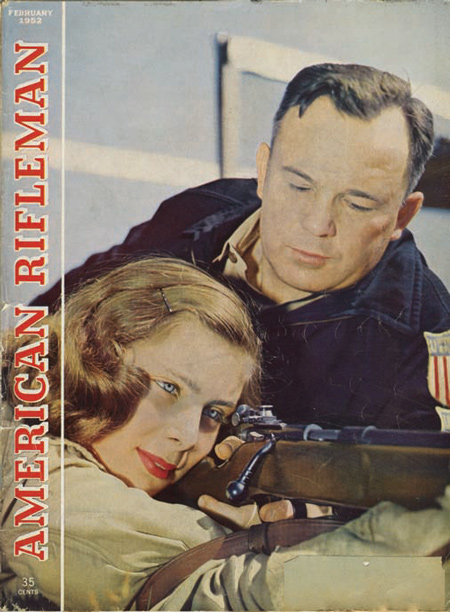
Walsh never remained far from his range in an effort to maintain his skills. He won the Marine Corps Pistol Championship in 1946 and 1948. In 1947, he won the Eastern Division Rifle Championship, then in 1949 the Eastern Division Pistol Championship. Walsh had a good year with the rifle in 1952. He won the Middle Atlantic States High Power Rifle Regional, and the National Bolt Rifle Championship and Marine Corps Cup Match at the National High Power Rifle Matches conducted at Fort Benning, GA.
International Competitive Shooter and Coach
During his lifetime, Walsh shot with or coached various American teams in International, Olympic and Pan American championships. He competed in the Sixth International Pistol Matches in Mexico City in 1940, and the XIVth Olympiad in London in 1948. He made his best showing in 1952 at the 35th World Championships in Oslo, Norway, where he won the silver in International Pistol and a team gold medal in Centerfire Pistol. He also participated in the 36th World Championships in Caracas, Venezuela, in 1954. Walsh was Captain of the U.S. Team in the 1955 Pan American Matches in Mexico City and was designated head coach for the U.S. Rifle and Pistol Teams at the 1958 World Championships in Moscow.
In 1962, Col. Walsh was assigned as the Commanding Officer, Weapons Training Battalion, Quantico, where he remained until his retirement.

Upon his retirement from the Marine Corps in 1969, the Commandant of the Marine Corps recognized Col. Walsh as, " ... an internationally-known Marine shooter, who has contributed more to marksmanship than any other living Marine."
Muzzleloading and black powder shooting beckoned in the late 1970s and Walsh coached and shot on several U.S. International Muzzleloading winning teams in competition around the world.
Walsh was a director of the National Rifle Association for many years and served on several of its committees. In 1997, Walsh was named the Outstanding American Handgunner. He is one of few Marines who earned the honor of being a Triple Distinguished shooter—Distinguished in in rifle, pistol and International (pistol) shooting. He also distinguished himself as a devoted family man and husband to his wife Kathleen of 45 years and his five children: Kathleen, Linda, Rosemary, Walter and Jerry.
Editor's Note: Sadly, Walter R. Walsh passed away in 2014 at the age of 106. He was still shooting occasionally when the urge struck him.







